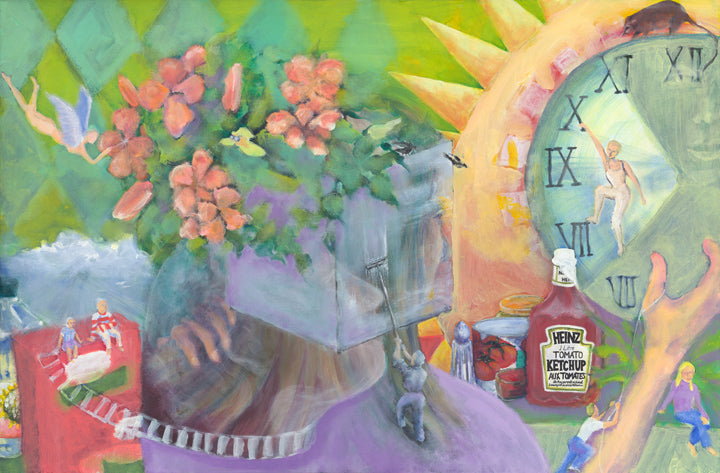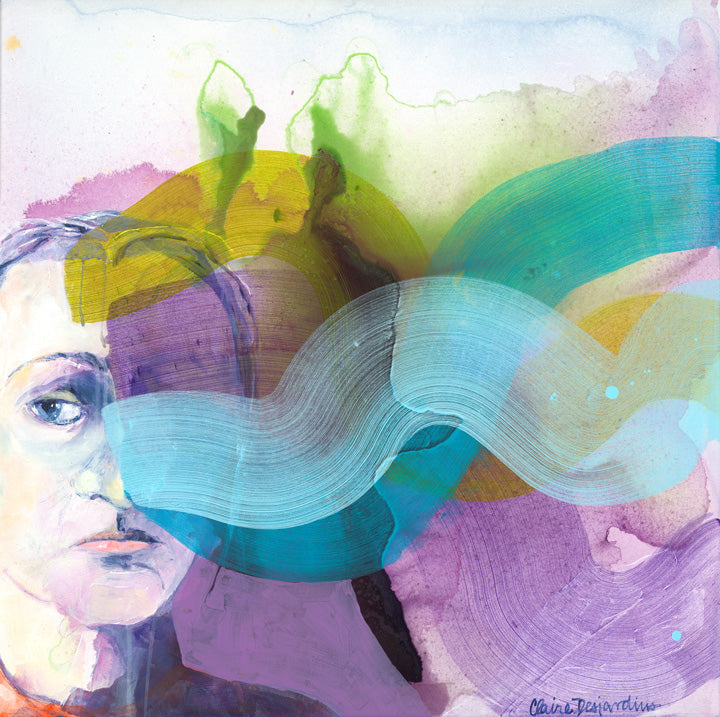Art therapy, a powerful tool for healing and self-discovery, harnesses the language of creativity to facilitate emotional expression and growth. The very essence of abstraction aligns harmoniously with the principles of this therapeutic approach (which may explain why I've had so many mental health professionals attend my painting workshops!).
Much like the way abstract art allows viewers to interpret and connect with the artwork based on their unique experiences, art therapy encourages participants to engage with their own creative process on deeply personal terms.
What sets abstraction apart is its ability to transcend cultural and linguistic barriers. It functions as a universal language that speaks directly to the human soul, fostering empathy and understanding beyond words. In art therapy, abstraction becomes a bridge that connects individuals from diverse backgrounds, allowing them to communicate and share their innermost feelings without limitations.
Moreover, the act of creating abstract art is inherently cathartic. The intuitive brushstrokes, the fusion of colors, and the surrender to the canvas mirror the emotional release that individuals seek in therapy. This process of translating complex emotions into visual forms serves as a mirror to one's inner landscape, aiding the therapeutic journey of self-exploration.
Both abstraction and art therapy encourage embracing ambiguity and stepping into the unknown. They offer a safe space to confront vulnerabilities and uncertainties, fostering personal growth and resilience. In a world where mental well-being is of utmost importance, the union of abstraction and art therapy holds immense promise.
As an abstract artist, I am inspired by the symbiotic relationship between abstraction and art therapy. Each stroke of color on a canvas echoes the transformative power that art therapy offers to those on their path of healing. Just as abstract art invites viewers to delve into their own interpretations, art therapy invites individuals to dive deep within themselves, ultimately leading to a more authentic and empowered sense of self.



3 comments
I’ve loved your work for a few years now, and feel comfortable in abstract work! It has always spoke to me and I keep working in it though I’m a novice! Thank you for your inspiration!
Loving your blog posts Claire!
I find your words incredibly inspiring. I once thought about Art Therapy as a career. Now at 69 years old I am retired from my retail career which I used to support my family and my art addiction. Too late for an art therapy career, but you have made me realize that I can provide a therapeutic experience through my work, not only for me but for anyone who views it. Thank you.